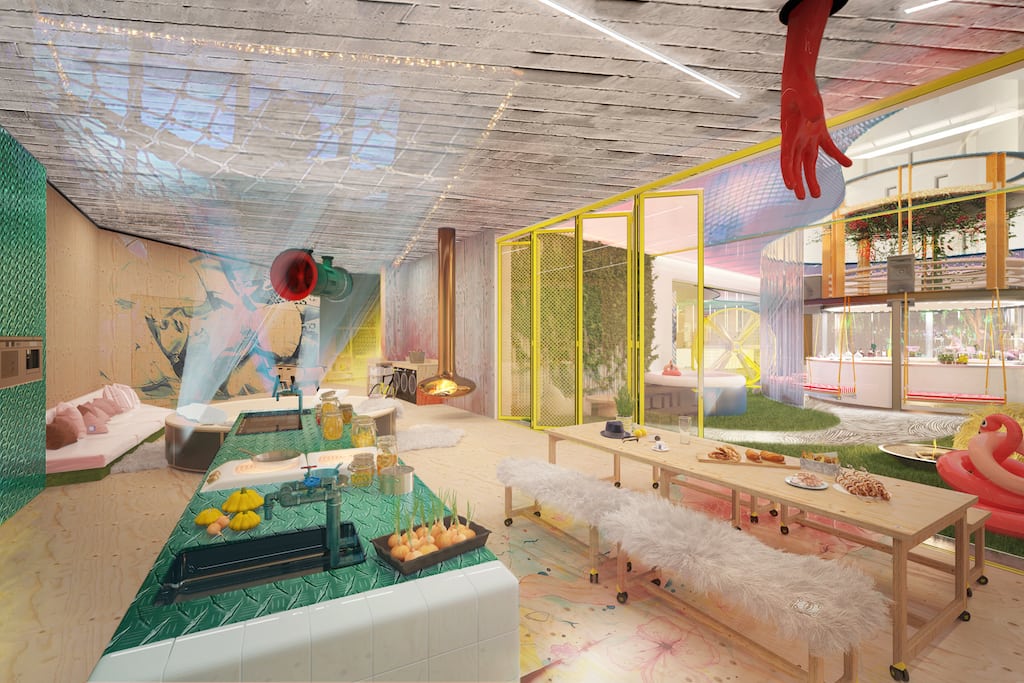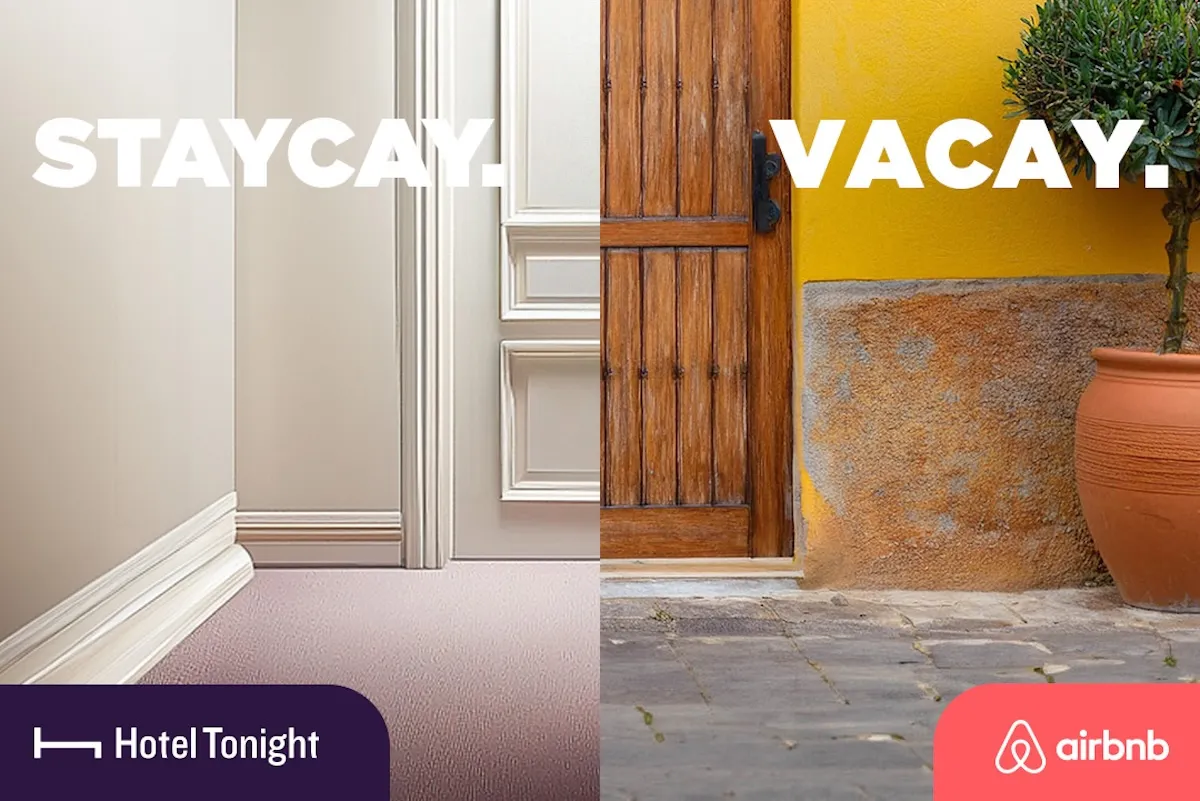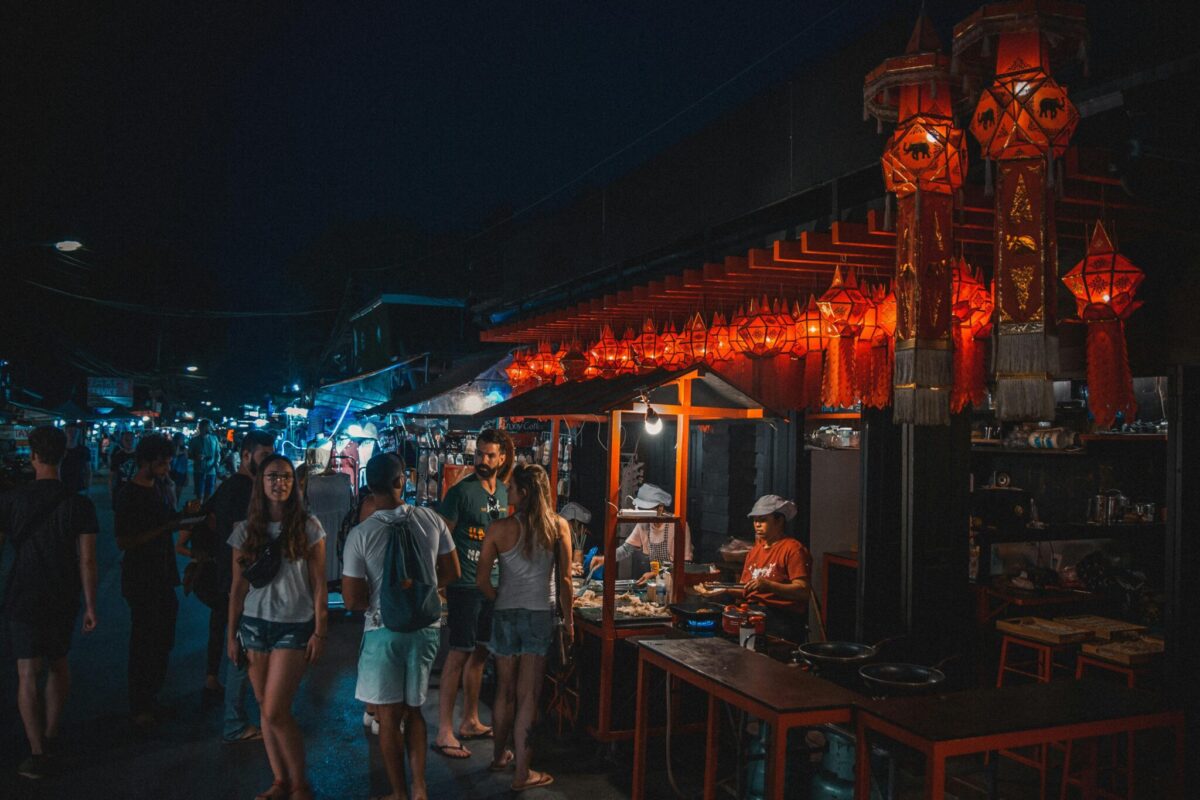10 Hotel Trends That Will Shape Guest Experience in 2017

Skift Take
"What's the biggest trend in ______ you're seeing these days?"
This is a question we here at Skift field every day, 24/7, 365 days a year, and one that we attempt to answer each and every one of those days. But as we all know, no matter what sector of travel that you fill in the blank, the trends continue to evolve day in and day out, building upon trendlines that have persisted throughout the course of the industry's history.
When it comes to the hospitality industry, trends can be both ephemeral and everlasting. Some are just a flash in the pan; others have a staying power that last for decades. Last year's trends were, in many ways, shaped heavily by consolidation and the drama that accompanies mega mergers and acquisitions, as well as the direct booking wars waged among hotels and their eternal frenemies, the online travel agencies.
Whatever ends up ultimately happening in 2017, we know it promises to be a year of great change. In 2017, we'll even have a hotelier in the White House, for whatever that's worth. And following last year's multiple mergers and acquisitions, the lasting effects of those consolidations will finally begin to emerge, and become that much clearer.
So, what will this year's trends in hotel guest experience bring? We won't guarantee complete or absolute accuracy here, but given what's happened in the past year, this is where we see the various trends culminating.
1. Co-Everything
When we said co-living could become the next big trend in hospitality, we weren't kidding. While it's doubtful that we'll suddenly see a surge of pod hotels, poshtels, or co-living/co-working spaces flooding the hospitality scene in 2017, the tenets of "co-living" — that emphasis on collaboration and community — will permeate much of the hotel guest experience in 2017.
In some ways, we're already seeing it. In September, for example, AccorHotels announced it was launching a new brand, Jo&Joe, largely inspired by co-living and hostels. And in December, Hilton Worldwide announced it too was considering launching an "urban Microtel" brand concept in the near future.
In 2017, expect to see even more emphasis an investment on communal areas, as well as on spaces and experiences that bring people together.
Because if there's one advantage hotels have over home shares like Airbnb or HomeAway, it's that role of being a real community fixture — a place where strangers can really gather together. Yes, an Airbnb might place you in the heart of a local neighborhood and you might be introduced to a local host but in many cases, the experience of a home stay can also be isolating. There's no central hotel lobby where you can gather with other travelers or locals. So expect hotels to double down on this distinct advantage, and attempt in their own way, too, to make guests feel as though they really "live there."
2. Good Design Goes Mainstream
Thoughtful design isn't something exclusive to boutique hotels anymore — it's the basic price of admission these days. Skift Senior Editor Greg Oates pointed out as much when he demonstrated how Marriott, Hyatt, and Hilton are shedding their outdated design legacies.
Whether your hotel is ultra-luxury or bare-bones budget, your guests are going to expect it to look good, and feel good. And if current retail and interior design successes are any indication these days, they are proof that you don't necessarily need deep pockets to have good design.
Design has always played a crucial role in hospitality, especially in defining that hotel's brand or persona, and today's guests are intuitively attuned to interpret design to fit their conceptions of what a hotel is really like, and if it's the right fit, or lifestyle, for them.
With the entry of home furnishing and fashion names like West Elm, Restoration Hardware, and Karl Lagerfeld into the hotel space, expect the bar for good design in hotels to be raised even higher in 2017.
3. Experiences Beyond the Hotel
Whether or not Airbnb's gamble on Trips succeeds or fails, the mere fact that the company has launched tours and activities should be a clear signal to hotels that they too need to be paying more attention to guests' experiences not just inside the hotel but outside of it. They need a much more holistic approach to overall guest experience than they're used to delivering.
We've already seen glimpses of this, especially in the luxury end of the spectrum, but we should expect more hotels in other categories doing the same, too. And if they aren't, they need to start thinking about them sooner than later.
4. Concepts of Loyalty Need to Evolve
The loyalty program remains the backbone of so many different hotel companies' master strategies, and that certainly won't change at all in 2017. And while so many hotel companies are placing so much emphasis and scrutiny on their loyalty programs, we hope they won't follow in the footsteps of the airlines.
In many ways, today's overall travel loyalty landscape is one fraught with fragmentation. And in the case of the airlines, loyalty programs are increasingly rewarding gamesmanship and large spending over anything else. Perhaps that's the strategy that makes most financial sense, but is it really the strategy that'll win customers' hearts and minds?
We're not so sure, but if hotel brands want true loyalty from their guests, it'll be hard to achieve that if they rework their programs to be more like the American Airlines, Delta Airlines, and United Airlines of the world. They should also know better than to offer canned responses to loyalty members' requests for more information when they decide to revamp their programs, too.
Hotel loyalty as it stands today is entering an age of awkward adolescence, the result of multiple consolidations and changing consumer behaviors and expectations. In 2017, hotels have a golden opportunity to redefine what real hotel loyalty is like and we hope they seize that chance.
5. Hospitality Will Rediscover Its Roots
A lot of times it can be easy to forget that, at the heart of it all, the travel industry — especially the hospitality industry — is really about people. We don't mean to, but sometimes, in the pursuit of efficiency and profit, we as an industry have forsaken our biggest and most important resource: humanity.
Two Roads Hospitality CEO Niki Leondakis reminded us of that when she spoke at the Skift Global Forum in September. She said that the real disruption and innovation in hospitality doesn't lie in technology or constructing great spaces. It's about the service, and the people delivering it.
"The basics of hospitality have been compromised to make room for innovation, but the best innovation comes from the inside out," Leondakis said. "Creativity happens when our employees are empowered and they are not feeling any fear."
And in empowering those of us who work in hospitality to be better at delivering genuine hospitality, we'd also do well to heed restaurateur Danny Meyer's advice, too: "The only way to motivate someone is to give them a higher purpose beyond a paycheck."
6. "Local" Will Regain Its Meaning
Hotels need to stop thinking of bringing "local" into the hotel through artisanal hand soaps or "locally sourced, free-range bacon." In the same vein of bringing more humanity back to travel and hospitality overall, hotels need to start thinking more about their local community, too.
In fact, we predict hotels will begin reclaiming the role they once had as community centers, only this time they'll have evolved to solve challenges unique to modern times.
AccorHotels CEO Sebasiten Bazin touched on this concept with us when we spoke to him in July, fresh off Accor's finalized $2.7 billion purchase of the Fairmont, Swissotel, and Raffles hotel brands.
"Ninety-nine percent of what we have done for 50 years has been based on the guy coming from outside of town," Bazin said. "A traveler, from a different city, from a different country, which I think is interesting, but not too smart. Because we missed a population which is 100 times greater and better and easier: The guy living next door. The local inhabitants. They live around the hotel, or they go to an office around the hotel, and 90 percent of them never dared coming into the property, because they're fearful that we're going to be asking, 'What's your room number?' They don't need a room, but they may need a service."
Bazin said there are "zillions of services we're going to get into," among them having hotels assist locals with simple tasks and solving everyday solutions like holding packages or keys or recommending the best services nearby.
"[The hotel will be] a place that will make your life easier," he said. "It's giving a purpose to the Accor people, because they're going to be feeling very proud, proud of bringing that additional service that people need, and are afraid of asking for."
7. Luxury That's Leaner and Smarter
Today's concepts of luxury aren't limited to 1,000-count-thread sheets or the finest Russian caviar, and given what's happening overall in terms of global shifts in consumer behavior, it's clear that experience is winning out over the material when it comes to the kind of luxury that consumers prefer.
This isn't to say people don't want opulence or extravagance anymore. For some travelers, that's still an integral part of what defines luxury. We're not saying luxury is transforming into something more Spartan, or more minimalistic, either.
What we're saying is that lean luxury is doing away with the excess of what we used to think luxury used to have — those over-the-top messages, the logos, the in-your-face-kind of luxury we might have encountered 30 years ago. Instead, lean luxury is about the new luxury, about offering travelers a more authentic, genuine luxury experience unfettered by specific brand or quality standards like thread counts.
The cornerstones of what makes something luxury will still remain — they are the price of admission, still — but they're not what travelers are paying attention to anymore. Luxury travelers already expect those services, those finishes, those exquisite products, those incredible designs, those little touches, to already be there.
What will really set a luxury brand apart today — what defines lean luxury — is everything else. It's personalized service. It's having a clearer sense of community and place. It's craftsmanship. It's having a story to tell.
The hotel or the first-class cabin don't have to be gilded in gold to be deemed luxury. They just need to have a story behind their brands to communicate to travelers. And that story needs to fit in with the local environments and preferences of the communities they operate in.
And we're already beginning to see glimpses of that, especially in how hotel companies like Marriott and AccorHotels are choosing to further distinguish and position their luxury brands.
8. The Smart Hotel Emerges
Not all hotels will become like the Wynn Las Vegas, equipping each and every hotel room with its own Amazon Echo smart speaker device, but we can expect more on-demand technologies to find their way into hotels in 2017.
That's simply a given, especially as hotels continue to make large investments in beacon technologies, messaging, streaming in-room entertainment, and other smart hotel concepts.
9. Expect Even More Brands to Emerge, Both New and Familiar
Maybe Marriott won't be adding any more brands to its portfolio of 30 anytime soon, but when it comes to its peers, Hilton included, there's certainly room to grow.
In 2017 we should also expect to see even more non-traditional hotel brands entering the hospitality space, as we did in 2016 with West Elm and Karl Lagerfeld, for instance. Zappos Hotels, anyone?
"I think brands are trying to leverage some of their market share with these brand extensions," said Gray Shealy, executive director for Georgetown's Hospitality Management master's program and a former global design director for W Hotels. "This way, they're able to attract more customers and get more people to try their products."
Bjorn Hanson, clinical professor with the NYU Preston Robert Tisch Center for Hospitality and Tourism, said he thinks this trend isn't going away anytime soon, either, driven by the growth in new hotel projects and the fact that boutique has gone mainstream.
"The amount of new projects being launched is almost double what it was in 2014," Hanson said. "We were at less than 1 percent supply growth and now 2 percent or slightly more. That explains part of it. A second issue is … well, lifestyle hotels are kind of the norm and no longer special. We need to find a new way to make them special with a new kind of affiliation. Instead of another hotel brand, it's another kind of a brand."
The added "halo effect" of these established brands is also a benefit, Hanson said.
"Many of these brands have an identity that is understandably related to hotels," he said. "Whether it's a company involved in fashion or decorating or design, these are not alien to hotels. It's easy for consumers to see why they think they might be appropriate as hotels, too."
10. Data Interpretation Is the Ultimate Intelligence
Now that we've advanced enough to know how to collect or mine data, it's up to the industry to know what to do with that information.
That was a message delivered by Airbnb Global Head of Hospitality and Strategy and Joie de Vivre Hotels founder Chip Conley, as well as former Starwood CEO Frits van Paaschen, when they each spoke at the Skift Global Forum in September.
Conley spoke about the emergence, 25 years ago, of the revenue manager and how "it was sort of curious to us old school hotel people." Today, he said, the revenue manager of yesteryear is the data scientist.
"Where hotels are way behind is data science," Conley said. "Data scientists represent what revenue managers represented 25 years ago. If you have a lot of data scientists, you're both able to find the right customer for you. This is a huge differentiator in the long term: personalization and customization." Later, he added, "We need to get really smart around data science. It helps us personalize choices."
"There's an extraordinary amount of information available, but a real dearth of information that's potentially relevant to any one individual," van Paaschen said. "A lot can still happen in the hospitality business. It's a breeding ground for ever more innovation."
Big data, he said, is the "interaction of people and technology" and the key is "how do you get that data into people's hands who deliver service at the moment they do that?"
"Personalization is the next manifestation in the evolution of brands," he added. "If you have this emergence of brands being reliable, then having a personality through media, and now you have personal access with mobile. Brands really can deliver personalization now. The expectation of people of brands is you should know me and know what I want."
In 2017, it's clear that the hospitality industry needs to be prepared for even more disruptions that lie ahead. And to be prepared, it's clear hotels need to look beyond the boundaries of their own industry to take stock of what's happening, not only in travel, but the greater world beyond it.




